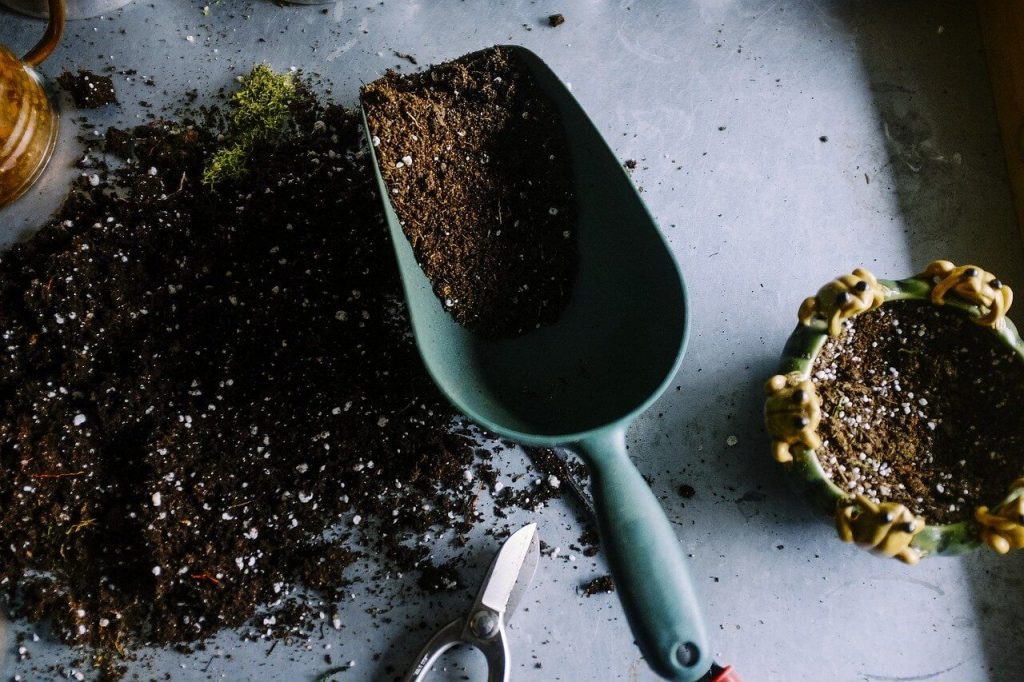Fish fertilizer is like any other chemical and organic fertilizer that adds essential nutrients to the plants when added to the soil. Moreover, fish-based fertilizers provide long-term benefits to the soil, unlike many chemical fertilizers that can decrease soil fertility over time.
Many gardeners criticize the fish fertilizer for its strong stench and lack of N P K compounds, but these allegations have no strong ground. You can easily find odor-free fish fertilizer in the market that boasts NPK nutrients and other minerals that chemical fertilizers severely lack.
Let’s use this opportunity to talk more about fish fertilizer and its benefits, produce it at home, and the different types of fish fertilizers you can find in the market.
Fish Fertilizer: What is it exactly
Fish fertilizer is a fish-rich emulsion made up of diluted fish products and carcasses, including bones, scales, and skin. The fertilizer is made out of organic matters –for the most part.
It packs a lot of bacteria and fungi compared to chemical fertilizers. These bacterial microorganisms boost soil health and disease control.
The history of fish fertilizer dates back to indigenous Native American tribes who placed a small fish in the soil and then mounded fresh dirt over it to plant corn seed. The fish slowly decomposed, feeding the crop until harvest.
How is fish fertilizer prepared?
You can easily prepare it at home or buy a commercial pack of fish fertilizer from the market.
Commercial Fish Fertilizer
The commercial fish fertilizer is made from fish breeds such as menhaden and anchovies. They’re grounded into a slurry-like mixture and then processed to remove oils and fish meal. The liquid content that remains after processing is fish emulsion. However, it’s still not ready for use in the garden. The fish emulsion is further strained to remove solids. Sulfuric acid is later added to lower the pH and prevent the growth of microbes. Only after this, the fish emulsion becomes a fertilizer stable to use in different garden and lawns. You can opt to buy a liquid fish fertilizer or dry fish fertilizer.
Most commercial fish fertilizer is odor-free. These odor-free fertilizers are often made using a “hydrolyzed” process that involves natural enzymes breaking down the material rather than heat. However, the odor-free compound in fertilizer may account for less than 1% of the entire fertilizer, so you can be assured that you’re using an organic product.
Homemade Fish Fertilizer
Preparing fish fertilizer at home comes with many benefits. Most commercial packs don’t use the whole fish but trash fish parts. Homemade fish emulsion packs a heavy amount of protein, amino acids, and oil.
How to make homemade Fish Fertilizer #1
- A fresh emulsion mixture can be easily made from one-part fresh fish, three-part sawdust, and a bottle of unsulfured molasses.
- You will treat it like any other compost: Add a little water and put the mixture in a container with a lid, stirring and turning it daily for about two weeks until the mixture is broken down.
How to make homemade Fish Fertilizer #2
- Fill the bucket about 2/3 of the way full by layering fish scraps and brown organic matter-like leaves in equal parts. Adding molasses and seaweed is optional.
- Fill the bucket with water to cover all the material; cover it with a lid, and keep it out of the sun.
- Stir the mixture every few days for several weeks.
- Pour off the water and catch it in another bucket. The remains are the fish emulsion. You can use the remaining fish scraps and leaf litter to brew another batch or just put them in your compost pile or worm bin.
How do you use Fish Fertilizers?
Don’t forget that the fish fertilizer must be diluted with water before it can be used. Depending on the type of fertilizer, you can apply appropriate usage.
Liquid Fertilizer
Liquid fertilizer or fish emulsion is prepared by extracting oil from fish meal.
Before using it, you must shake it well and then mix 2 tablespoons of fertilizer with 1 gallon of water. One gallon will cover 25 sq. ft. of soil. Some plants like berries, perennials, and roses may require 3 spoonfuls of fertilizer with 1 gallon of water.
Dry Granules
Dry fish fertilizer is made from fish meal and can be used like any other dry fertilizers. You can scatter pellets or granules onto the ground’s surface and gently work them into the top 1 inch of the soil around plants with a rake. In the end, water them well.
9 Benefits of Fish Fertilizer for your crop and garden
There are many benefits to using fish fertilizer in your garden.
- Fish fertilizers are the all-organic way to supply an abundance of macro minerals and vitamins to the outdoor plants.
- The fish emulsion fertilizer contains up to 5% of nitrogen with several trace elements that help boost soil fertility.
- Fish meal is a slow-release fertilizer with a high content of macronutrients. It also provides good bacteria in the soil.
- Hydrolyzed Fish fertilizer has a lower pH than diluted fish emulsion, which helps preserve more vitamins, proteins, and microbes.
- Fish fertilizers offer a source of burn-free nitrogen, along with the other primary nutrients of phosphorus and potassium.
- Unlike chemical fertilizer, fish fertilizer doesn’t pollute the soil and nearby water sources. Also, it doesn’t harden the soil structure and decrease soil fertility after each use.
- Along with the good N P K ratio, fish fertilizer packs, important oils, amino acids, vitamins, hormones, and enzymes.
- If properly stored, liquid fish fertilizers can have a shelf life between 8-10 years.
- Fish fertilizer ensures the sustainability of the environment by reducing fish waste, protecting soil fertility and nearby water sources, and ensuring the use of all-organic matters.
Things to Know about Fish Fertilizer
Here are a few of the questions often asked by gardeners regarding fish fertilizer.
How does Fish Fertilizes help amend the soil?
A: Fish fertilizer provides an excellent source of nutrition to plants and soil without damaging soil fertility. It ensures an active soil ecosystem.
It helps stimulate soil microorganisms that exist in the soil. When you apply fertilizer into the soil, it increases the soil’s good bacteria and produces more available organic nitrogen for plant roots.
Is it a good source of nutrition for plants?
You can find both quick and slow-release fish fertilizers. With fish fertilizers, plants receive a controlled level of nitrogen, a vital element necessary for the production of Chlorophyll. Unlike chemical fertilizers, it doesn’t release too much nitrogen into the soil.
It is well known that synthetic nitrogen fertilizers ‘volatilize’ into the atmosphere, not only being lost to plant availability but contributing to greenhouse gases.
Its organic content can be added to already highly fertile soil to boost crop growth and microbial activity.
Does fish fertilizer attract rodents and pests?
The rancid smell of the fish can attract rodents. You can choose to use odor-free fish fertilizer for your garden if you fear attracting rodents. In some cases, the smell can chase away some critters and pests.
If you’re all for organic fertilizer, you should definitely consider fish fertilizer with a higher amount of micro minerals than other organic fertilizers. Although it can be slightly expensive than your usual fertilizers, it’s definitely worth it.


Leave a Reply